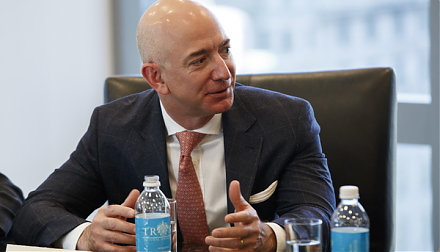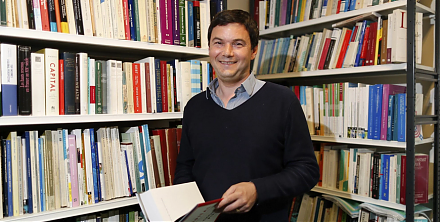

2020-07-05 11:31:00 Sun ET
lifelong learners team work streams distinctive capabilities best practices value creation leadership competitive advantages team leaders perseverance resilience founders senior managers domain expertise institutional knowledge core competences purpose vision mission product differentiation cost leadership meritocracies critical success factors
Business entrepreneurs dare to dream, remain true and authentic to themselves, and try to make a great social impact in the world.
Alex Malley (2014)
The naked CEO: the truth that each of us needs to build a big bold life
Business co-founders and entrepreneurs dare to dream, remain true and authentic to themselves, know what they want to be truly happy, apply key principles to make sound decisions, and seek to make a positive impact in the world. The past cannot determine the future (although early life experiences may inadvertently affect each person). Prior experiences can often create fears that sometimes get in the way of achievement. From time to time, the first step entails expanding our social universe to business success and profitability. For this purpose, it is key for us to understand our unique gifts and contributions. This important process requires self-reflection, determination, and perseverance for most co-founders and entrepreneurs to follow their lifelong passions, visions, and imaginations.
Without authenticity, there is virtually minimal chance of success. Each person has unique qualities and contributions in most teamwork. Without being true to oneself, however, each founder cannot make his or her qualities and contributions come to fruition in time. Business success arises from good and authentic relationships and collaborative opportunities. At the same time, it is important for team members to keep key institutional knowledge. Business founders and entrepreneurs can reach their big bold lives by failing forward with the collective wisdom of both remediable mistakes and iterative trial-and-error experiences.
Business co-founders and entrepreneurs should never let fear and embarrassment hold people back from pursuing their dreams. Unless these entrepreneurs continue to be comfortable with their own journeys, these business men and women are not likely to truly help others accomplish much on their own business and life journeys. In some ways, business people must be selfish before they can become generous; business people must take profits and other cash rewards before these people can learn to give others lucrative opportunities; business people must fail forward with iterative continuous improvements, mistakes, setbacks, and disappointments well before these people attain sustainable business success and profitability. It takes time, hard work, and perseverance for such business endeavors to come to fruition in time. After all, the law of inadvertent consequences counsels caution. Business entrepreneurs must rely on the collective wisdom of team members to make savvy core business decisions in due course.
Business entrepreneurs must dare to dream.
Most business entrepreneurs need to know their own strengths and weaknesses. These entrepreneurs should remain authentic throughout their business lives and journeys. At the same time, these entrepreneurs avoid comparisons to others and instead focus on applying core competencies and distinctive capabilities to achieve the ultimate business goals. Business entrepreneurs must remain positive to treat others with respect. These business entrepreneurs often admit their own mistakes and setbacks, and these entrepreneurs learn to take responsibility for their actions and decisions in due course.
Savvy business entrepreneurs often relax and realize in hindsight that most issues are not as big a deal as they seem at first glance. From time to time, these business entrepreneurs cannot spend time worrying about not being able to please all of the team members and stakeholders. It is important for most business entrepreneurs to follow their own inner voices and gut instincts.
It takes time to realize dreams with clear paths toward the ultimate business goals. Most entrepreneurs should write down their business goals and visions. In this way, these entrepreneurs ingrain these attainable business goals and visions with great motivation, advice, and support from most other team members and stakeholders. Business entrepreneurs set realistic time frames for accomplishments and so take small incremental steps toward the more distant goals. At any rate, most business entrepreneurs take time to celebrate both small wins and major milestones.
Mistakes, setbacks, and disappointments can be highly valuable experiences that help strengthen both the character and resilience of most business entrepreneurs. The pervasive fear of making mistakes often stifles business growth and innovation. Most business entrepreneurs take responsibility for their own strategic actions and decisions. These entrepreneurs look for solutions instead of trying to blame others. At each stage of business progression, most entrepreneurs must maintain a sense of long-run perspective. What seems monumental may be minor, and what seems to be fundamental flaws may be minor blemishes. It is important for entrepreneurs to avoid making mountains out of molehills.
We can draw a major distinction between young employees and entrepreneurs: it requires a strong sense of self-confidence to be ourselves, and young employees often get so busy trying to change their unique personalities and behaviors to meet the main expectations of senior business leaders that these young employees lose what makes them special. In stark contrast, most business entrepreneurs are bold and direct enough to stay true and authentic to themselves. These entrepreneurs can take constructive criticisms to mull over the next positive steps toward the long-term strategic goals.
Business entrepreneurs must create their own social universe.
In the business world, co-founders and entrepreneurs must attempt to understand their unique gifts and contributions and then apply this institutional knowledge and self-reflection to boost positive changes in their organizations. This process entails great determination and perseverance for most co-founders and entrepreneurs to follow their passions, visions, and imaginations. For many business entrepreneurs, the path to success starts with formal college and graduate school education. Most entrepreneurs use their specific technical knowledge and expertise in the business environment. Good examples include Warren Buffett (Berkshire Hathaway), Kevin Systrom (Instagram), Elon Musk (Tesla and SpaceX), and Jeff Bezos (Amazon).
However, education cannot stop at the school doors. No one should allow degree programs and classes to interfere with his or her own education. Lifelong learners continue to sharpen the saw with due diligence. It is important for these business entrepreneurs to tailor curriculum to the specific business sector or subject matter area. These entrepreneurs often need to ask good questions to probe into the key aspects of technical specialty (such as software, cloud service provision, Internet search, mobile connectivity, social media, and e-commerce etc). At the same time, these entrepreneurs should build deep and meaningful relationships through social alumni networks. Successful business entrepreneurs forge friendship with different team members who can be generalists and specialists from diverse backgrounds.
In order to build a collegial team network, many business entrepreneurs can create their profiles on LinkedIn, which has become a great professional network platform for key team members. The headline mission statement can focus attention on the medium-to-long-term goals, visions, and passions for business entrepreneurs and co-founders. The LinkedIn profile adds positive value to professional experiences, extracurricular activities, academic accomplishments, honors, awards, and so forth. LinkedIn further empowers core team members to receive recommendations from former employers, senior managers, colleagues, professors, and fellow students. Each LinkedIn profile is more than a list of skills, achievements, core competencies, and distinctive capabilities. This online profile probes into the positive personality traits and behaviors of each team member. Revealing personality in a simple and informative way constitutes what renders each LinkedIn profile stand out from the crowd. The collective wisdom of LinkedIn profiles demonstrates an active interest in the business as most team members shares big and bold passions and visions in the broader context. From time to time, such LinkedIn profiles bring together key experiences, qualifications, personalities, skills, core competencies, and distinctive capabilities for business leaders to better assess the current product-market fit.
Business entrepreneurs must build rapport and respect among team members.
The best communicators are first and foremost keen listeners and keen observers. Speakers engage their audiences by listening to audience members, and so these speakers tailor their talks to appeal to those members. This principle applies to the broader business environment too. In this important way, most entrepreneurs can build rapport and respect among team members.
Although people can choose their close friends, most people cannot choose their colleagues. Successful business people find multiple ways to develop rapport with everyone in the office. Good communication is important. An open, respectful, and non-judgmental approach helps ensure positive relationships. Effective business entrepreneurs keep their light and positive attitudes. These founders seek common interests with others, remain conscious of both verbal and non-verbal expressions, focus on others, recognize the joint achievements of team members, build honest and meaningful relationships, and stay out of office politics.
It takes confidence and authenticity for business decision-makers to conduct open and persuasive dialogues with most team members. These key business decision-makers often need to lead by example to become a positive influence in the work place. Effective business leaders listen to others with respect, act from institutional knowledge, and try to include most team members in the relevant business sphere. Attractive business opportunities can be like diamonds in the rough that only open and honest business leaders can discover with both hard work and patience. Good examples of effective leadership include Steve Jobs, Larry Page, Elon Musk, Mark Zuckerberg, Andy Grove, Satya Nadella, Larry Ellison, Warren Buffett, and so forth. It is important for most co-founders, entrepreneurs, and team members to realize the fact that business decision-makers can learn leadership as a rare unique skill. Nature cannot determine our destiny. Hard work, patience, and perseverance can help business entrepreneurs make a positive social impact in the world.
Business entrepreneurs must be the best people that most team members cherish.
Achieving business goals arises from fully applying oneself in every situation (even the worst-case scenario). This achievement can help most business entrepreneurs earn trust and respect of others. In turn, such trust and respect can catapult these business entrepreneurs to their unique status of greater responsibility. A positive work ethic gets results. This contagious ethos empowers business cofounders and entrepreneurs to ask the right questions with good answers and positive changes and solutions. In the broader business context, effective entrepreneurs should try to push the boundaries to exceed most stakeholder expectations. Co-founders and entrepreneurs should never be complacent; instead, they should sharpen the saw to challenge the status quo with iterative continuous improvements over time.
As co-founders and entrepreneurs successfully achieve their business goals, their responsibilities grow. Good time management and organization skills can become increasingly important. As most co-founders and entrepreneurs may have different business processes to remain on track, almost all business leaders must develop their own organizational management strategies. Planning ahead, setting priorities, and pulling together different relevant work streams should be part of this business process. When push comes to shove, senior business leaders learn to make sound decisions with few inadvertent repercussions later.
It is non-obvious for senior business leaders to find new business opportunities. In practice, talking about out-of-scope tasks can sometimes yield hidden gems of new blue-ocean business opportunities. When business entrepreneurs and cofounders find these hidden opportunities, these entrepreneurs should never let fear of failure stand in their way. Instead, these entrepreneurs must leverage chance encounters to find out why some fringe niche segments can be the next blue-ocean markets. This analytical skill helps connect the dots for business entrepreneurs to formulate the new product-market fit. In this context, an open positive attitude that transcends difficult relationships can result in greater returns in the future. Taking responsibility for mistakes and setbacks helps build entrepreneurial character.
Business entrepreneurs must favor servant leadership over strongman leadership.
Leadership manifests in many forms and should not always be about being the big boss in the corporate context. Highly effective senior business leaders set strategic priorities, delegate important tasks, and build up team members over time. At any rate, it is important for business decision-makers to map individual priorities as well as contributions to the broader strategic pillars. In this important fashion, business leaders can ensure closer alignment between individual contributions and strategic priorities. As managerial responsibilities grow over time, it is important for business leaders to delegate tasks to team members to make time for strategic activities. In this unique low-key fashion, highly effective business decision-makers assign work to the right people. Servant leadership ultimately equates empowering others. For this reason, one of the most important leadership skills entails learning to delegate tasks to the right team members at the right time.
Great servant leadership leverages the power of team work as tasks become more complex over time. Servant leaders often let go of key tasks, but own responsibility for the results. These business leaders trust and empower team members; at the same time, these leaders keep an eye on their comfort levels. It can sometimes be beneficial for team members to work outside their comfort zones with clear project deadlines and expectations. Difficult tasks, mistakes, and circumstances can help build up team members. Past experiences, setbacks, and even epic failures often help develop confidence for the future. Confidence is an inner belief in oneself that he or she can handle whatever arises from the broader business context. Business leaders need to retain an appreciative attitude and a healthy perspective on what matters most in life. When team members work together to conquer their fears and challenges, the whole team benefits from a positive mindset of both resilience and continual improvement.
It makes much more sense for both business leaders and team members to pursue work-life quality. In this light, it may not be prudent for team members to view work-life balance as a great ideology, which lacks fun, focus, and quality. When senior business leaders place total trust in their team members and partners, tremendous progress can be made. When careers grow and responsibilities increase over time, the line between work and life begins to blur. In reality, it is important for business leaders to ensure that most team members work together to bring tangible rewards to enrich their socio-economic lives. At this stage, it is important for both business leaders and team members to start paying attention to the quality of time spent at work and at home.
At the overall pinnacle of lean, innovative, and frugal entrepreneurship (LIFE), work becomes life. Extracting quality out of every moment empowers entrepreneurs to better appreciate each moment. Business leaders mobilize team members toward their joint passions, visions, and imaginations. Many business leaders are humble, and several other business leaders can be charismatic. Either way, these business leaders inspire their teams. Effective business entrepreneurs find their own styles, remain authentic to themselves, and believe in their career paths. Good business decision-makers often lead by example, follow their gut instincts and inner voices, and influence teams and stakeholders with persuasive logic. After all, it is important for co-founders and entrepreneurs to enjoy their business adventures.
This analytic essay cannot constitute any form of financial advice, analyst opinion, recommendation, or endorsement. We refrain from engaging in financial advisory services, and we seek to offer our analytic insights into the latest economic trends, stock market topics, investment memes, personal finance tools, and other self-help inspirations. Our proprietary alpha investment algorithmic system helps enrich our AYA fintech network platform as a new social community for stock market investors: https://ayafintech.network.
We share and circulate these informative posts and essays with hyperlinks through our blogs, podcasts, emails, social media channels, and patent specifications. Our goal is to help promote better financial literacy, inclusion, and freedom of the global general public. While we make a conscious effort to optimize our global reach, this optimization retains our current focus on the American stock market.
This free ebook, AYA Analytica, shares new economic insights, investment memes, and stock portfolio strategies through both blog posts and patent specifications on our AYA fintech network platform. AYA fintech network platform is every investor's social toolkit for profitable investment management. We can help empower stock market investors through technology, education, and social integration.
We hope you enjoy the substantive content of this essay! AYA!
Andy Yeh
Chief Financial Architect (CFA) and Financial Risk Manager (FRM)
Brass Ring International Density Enterprise (BRIDE) © 2013-2023
Do you find it difficult to beat the long-term average 11% stock market return?
It took us 20+ years to design a new profitable algorithmic asset investment model and its attendant proprietary software technology with fintech patent protection in 2+ years. AYA fintech network platform serves as everyone's first aid for his or her personal stock investment portfolio. Our proprietary software technology allows each investor to leverage fintech intelligence and information without exorbitant time commitment. Our dynamic conditional alpha analysis boosts the typical win rate from 70% to 90%+.
Our new alpha model empowers members to be a wiser stock market investor with profitable alpha signals! The proprietary quantitative analysis applies the collective wisdom of Warren Buffett, George Soros, Carl Icahn, Mark Cuban, Tony Robbins, and Nobel Laureates in finance such as Robert Engle, Eugene Fama, Lars Hansen, Robert Lucas, Robert Merton, Edward Prescott, Thomas Sargent, William Sharpe, Robert Shiller, and Christopher Sims.
Follow AYA Analytica financial health memo (FHM) podcast channel on YouTube: https://www.youtube.com/channel/UCvntmnacYyCmVyQ-c_qjyyQ
Follow our Brass Ring Facebook to learn more about the latest financial news and fantastic stock investment ideas: http://www.facebook.com/brassring2013.
Free signup for stock signals: https://ayafintech.network
Mission on profitable signals: https://ayafintech.network/mission.php
Model technical descriptions: https://ayafintech.network/model.php
Blog on stock alpha signals: https://ayafintech.network/blog.php
Freemium base pricing plans: https://ayafintech.network/freemium.php
Signup for periodic updates: https://ayafintech.network/signup.php
Login for freemium benefits: https://ayafintech.network/login.php
If any of our AYA Analytica financial health memos (FHM), blog posts, ebooks, newsletters, and notifications etc, or any other form of online content curation, involves potential copyright concerns, please feel free to contact us at service@ayafintech.network so that we can remove relevant content in response to any such request within a reasonable time frame.
2025-09-28 10:10:51 Sunday ET

Stock Synopsis: With a new Python program, we use, adapt, apply, and leverage each of the mainstream Gemini Gen AI models to conduct this comprehensive fund
2025-09-18 08:03:32 Thursday ET

Stock Synopsis: With a new Python program, we use, adapt, apply, and leverage each of the mainstream Gemini Gen AI models to conduct this comprehensive fund
2018-09-03 09:31:00 Monday ET

Amazon follows Apple to become the second American public corporation to hit $1 trillion stock market valuation. Amazon's founder and chairman Jeff Bezo
2023-12-08 08:28:00 Friday ET

Tax policy pluralism for addressing special interests Economists often praise as pluralism the interplay of special interest groups in public policy. In
2019-07-25 16:42:00 Thursday ET

Platforms benefit from positive network effects, scale economies, and information cascades. There are at least 2 major types of highly valuable platforms: i
2019-05-01 09:27:00 Wednesday ET

Apple settles its 2-year intellectual property lawsuit with Qualcomm by agreeing to a multi-year patent license with royalty payments to the microchip maker